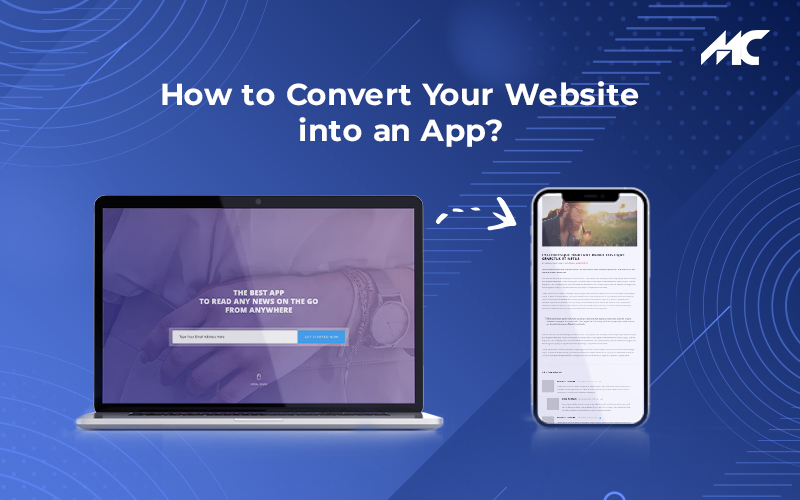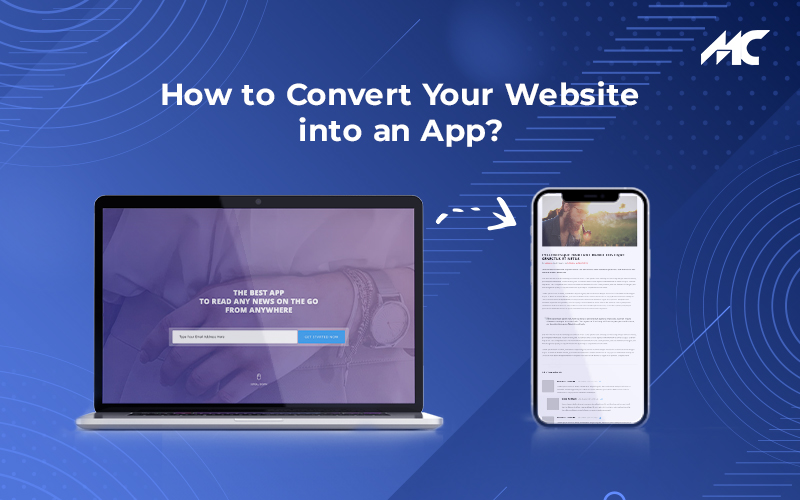How to Convert Your Website into an App?
Internet users have shifted their focus from desktop to mobile devices over the last decade. Thanks to the massive growth of the smartphone market, the internet can now be accessed through our fingertips. Today, people are getting more reliant on apps for the majority of their tasks. Businesses are taking the best advantage of mobile app development to take their consumer base to the next level.
The leading businesses worldwide have already understood the importance of developing mobile apps and decided to convert their website into an app. This helped them to acquire a wider audience and improve their revenue streams. This blog will help you learn to convert your website into an app.
- Why Should You Convert Your Website into an App?
- Approaches to Convert Your Website into a Mobile App
- Which Platform to Choose for Your Application: iOS Vs Android?
- Convert a Website into a Mobile App
- – Find Out the Need for Developing Your Mobile Application
- – Create a List of Features for Your Mobile Application
- – Get the Right Development Team for the Job
- – Estimate the Development Cost
- – Design a Stunning and User-Friendly UI and UX
- – Testing the App on Multiple Devices
- – Publishing Your Application to the App store
- Convert a Website into a Mobile App
- Choosing MobileCoderz for Streamlined Mobile App Development
Why Should You Convert Your Website into an App?
There are multiple benefits of converting your website into an app. Some of these benefits are;
1. Smartphones Will be Our Future
Smartphones have become the most widely used device in the world. By packing huge computing power, smartphones can be considered super-compact personal computers. They help us carry out our daily tasks like payments, music, tracking fitness, etc. Applications have made smartphones like the Swiss army knife of the modern-day.
2. Good Experience Across Multiple Screen Sizes
Smartphone applications are well optimized for different screen sizes. Thus, providing reliability and a better user experience to the end-users. In contrast, websites are not that optimized for various smartphones with different screen sizes. Furthermore, it takes more time for a user to access a website than a smartphone application. Website owners also find it fairly hard to incorporate every feature of the website into a small screen. A website also faces severe scaling issues on some smartphones.
3. Access to a Wider Audience
People have shifted from websites to applications. They love to try to out new applications instead of browsing websites on their smartphone. Thus, converting your website into an iOS or Android application makes more sense to grab the attention of a wider audience. People prefer the Google Play Store or Apple App Store for downloading applications on their smartphones. Thus, publishing your application in these stores could also be a great strategy for branding.
4. Mobile Apps have More Features
A smartphone application has extended features and functionalities than a standard website. An application can take the best advantage of the hardware capabilities of a smartphone and provide a better overall experience to the user. A business can use its application to send push notifications, upcoming offers, updates, and more.
5. Application Builds Credibility
Having your own smartphone application creates a positive image in front of your target audience. Nowadays, every Tom, Dick, and Harry can develop their own website. However, developing an effective mobile application requires skills and expertise with the right technology stack.
6. Offline Functionality
Using a website requires constant connectivity to the internet. In comparison, mobile applications can carry out some basic operations even without the internet (some apps).
7. Faster Navigation
The smartphone generation wants a blazing fast user experience to access products and services. Accessing a website takes more time and effort than simply using an application on a smartphone.
Approaches to Convert Your Website into a Mobile App
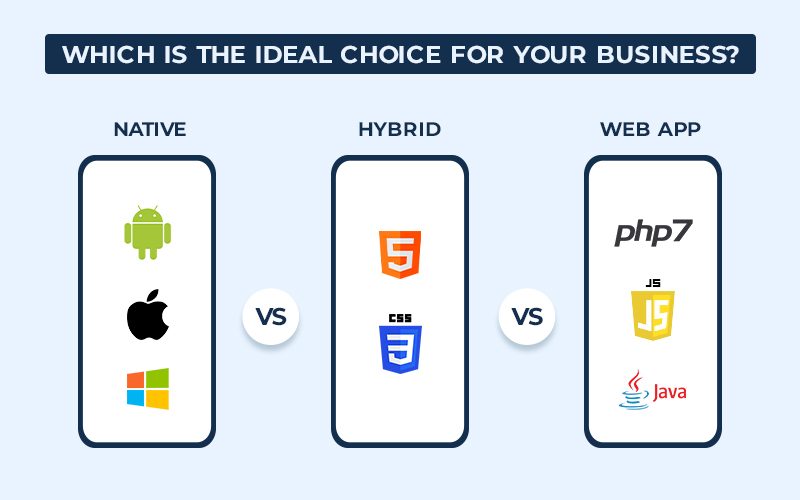
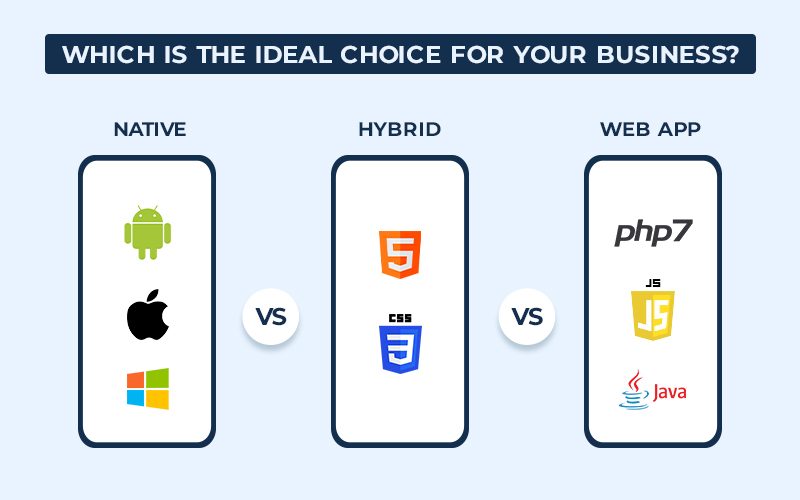
There are three most widely used options for converting websites into mobile apps. You can choose from one depending on your requirements, expertise, and target audience;
#. Native Application Development
Native application development is all about developing applications for a specific operating system. You have to choose an operating system where your native app will work. The smartphone market is conquered by iOS and Android operating systems. A native application provides the ultimate experience to the users of a mobile operating system.
If you want to develop an android application with tons of features, you have to hire android app developers to do the job. They have years of expertise in developing applications with Java and Kotlin, the developers will take care of design, deployment, testing, and deployment.
If you want to develop an iOS application, you have to get iPhone app developers who are well-versed with Swift Programming language and Objective-C. They will help you convert your website into an iOS application for a superior experience according to the market trends.
Advantages of Native Apps
- Developers get the full power to use libraries and modules in an operating system
- Native apps are high-performance and provide a better user experience
- Native apps can be personalized better for users
- You can ensure better security and safety for your users with this approach
- You can use the full device capabilities like GPS, accelerometer, facial recognition, etc.
Disadvantages of Native Apps
- Native apps take more time to develop apps
- It takes more expense to develop native applications
- Dedicated time is required to support and maintain the app
#. Hybrid Application Development
A hybrid application can be accessed through different platforms. Thus, you can develop a single mobile application for multiple operating systems like Android, iOS, Windows, etc. We can say that hybrid applications give us the best combination of native apps and web apps. Hybrid application development ensures that the app will work on multiple screens and platforms with ease. These applications could still access the hardware capabilities such as gyroscope, accelerometer, camera, etc.
Advantages of Hybrid Apps
- Businesses can create a single application that works on multiple operating systems. It decreases the expense of application development.
- Developers can just use a single codebase for different platforms
- A hybrid app can help you capture a wider audience with a better market presence
- It is much easier to maintain and update hybrid applications since the coders don’t need to work with multiple codebases
- It is very easy to integrate hybrid apps with cloud services
Disadvantages of Hybrid Applications
- Hybrid applications cannot match the performance of native applications.
- There are certain limitations in the functionalities of Hybrid applications. Thus, it is not advisable to develop complex applications with the hybrid approach
- The user interface and user experience are not refined in Hybrid applications like Native applications.
- It is a bit challenging to debug hybrid apps as compared with native applications
#. Progressive Web Apps
This is another alternative to both native and hybrid application development. The Progressive Web App Development allows users to add a web app or website directly to their phone’s home screen. You can convert your website into a progressive web app by creating an app icon, a web app manifest file, and developing a service worker. These steps will make your site work faster, in offline mode, and let you send notifications to the users. Presently, such applications are only available on the Android platform.
Advantages of Progressive Web Apps
- Developing PWAs is much cheaper than developing dedicated mobile applications
- The Progressive Web Apps can also work in offline mode
- Progressive Web Apps are reliable and give amazingly smooth animations
- Web apps are good for SEO
Disadvantages of Progressive Web Apps
- PWAs have very limited hardware and software capabilities
- There are no app stores for PWAs
- You cannot develop PWA for iOS devices leaving a huge market behind
- PWAs have limited browser support. Only a few web browsers support them
Which Platform to Choose for Your Application: iOS Vs Android?
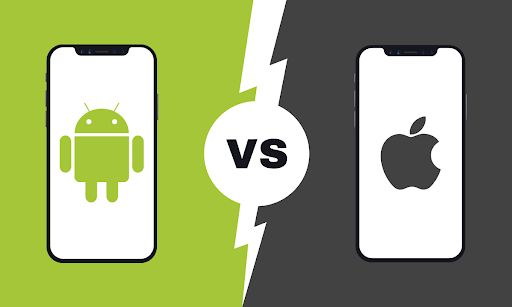
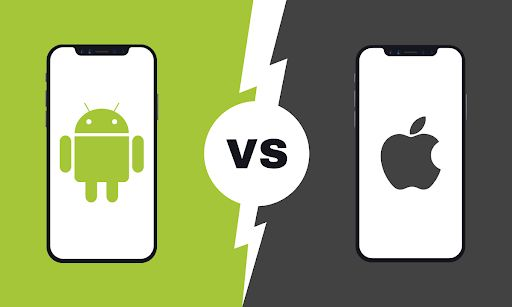
Android and iOS are the two major leading smartphone OS platforms. They are quite different from each other if we compare their hardware, userbase, and functionalities. In an ideal situation, you should develop applications for both platforms to capture the maximum number of users for your business. However, you have to choose one if you don’t have the resources or bandwidth to build applications for two different platforms.
According to Statics, Android has a larger user base than iOS with over a market share of 87%. However, iOS applications bring more revenue for businesses since it is a dominating operating system in western countries.
Let’s get a quick comparison between iOS and Android to understand the market;
|
Android |
iOS |
| Android users are likely to have IT jobs. | iOS users are likely to be in managerial positions or professional positions. |
| Android leads in emerging markets such as Asia, Africa, India, Latin America, etc. | iOS dominates in North America, Western Europe, and Australia. |
| Android is more preferred by men than women. | iOS is more preferred by women than men. |
| Android users have more options to get freeware than iOS users. | iOS users tend to spend more on apps than Android users. |
| Android users are more Tech Savvy people. | iOS users love the OS for its simplicity. |
| Android generally has an older audience than iOS users. | iOS users tend to have a young user base with ages between 18 and 24. |
| Android users buy smartphones with a utilitarian mindset. | IOS users buy smartphones as a status symbol and luxury product. |
Convert a Website into a Mobile App
– Find Out the Need for Developing Your Mobile Application
If you are thinking about developing a mobile application, then you first analyze the reasons to develop your app. It is important to note that not every business needs a mobile application. If your website is meant for basic operations and is mobile-friendly, then you might not need a dedicated mobile application. In such a scenario, developing a mobile application could increase your workload and might help the users who are just okay with the website. A best mobile app development company can help you decide the budget and features for your mobile app.
– Create a List of Features for Your Mobile Application
Before you begin the development process, you have to make a list of features and requirements that you want to incorporate into your application. This will give you a clear blueprint of what exactly you will be developing and estimate the development cost more accurately.
– Get the Right Development Team for the Job
It is hard to develop a high-quality and reliable mobile application on your own. Instead, you should save your time by hiring the right development team from a mobile app development company who are experienced with the latest tools and technologies. The developers will help you to keep everything on track and enable you to make sudden changes during the development of the application. It is fairly affordable to outsource a development team for mobile application development.
– Estimate the Development Cost
The estimated development cost completely depends on the complexity of your application. It is widely estimated that you will need capital between $38,000 and $91,000 to develop even a simple app for mobile platforms. The duration of the development process is also a significant factor in determining the final mobile app development cost. If you are going above your predetermined budget, then it would be a good idea to limit your extra features for now. They can be implemented later according to consumer demands.
– Design a Stunning and User-Friendly UI and UX
Experience is everything in smartphone applications. The UI and UX are some of the most crucial factors in deciding the success of an application. There shouldn’t be any learning curve to understand the design of your application and ease of navigation should be given top priority throughout the application. A mobile app development company can help you design the best UI & UX for your application.
– Testing the App on Multiple Devices
The testing process is very important to carefully fine-tune the application and avoid glitches and bugs before you release it to the market. This would create a positive first-hand user experience and your support team will save time instead of fixing old bugs. The overall experience on multiple devices can be greatly improved when you conduct proper testing.
– Publishing Your Application to the App store
The last step is all about publishing the application on the respective app stores. The Google PlayStore is a bit lenient when it comes to reviewing your submission, while Apple AppStore follows a strict and rigorous process. It takes more time for iOS applications to get approval from Apple. Once your app gets approval, the end-users can download your app from the respective store.
Choosing MobileCoderz for Streamlined Mobile App Development
Converting your website into a mobile application won’t be easy on your own. You should hire professional mobile application developers from MobileCoderz, a mobile app development company. We develop high-performance, reliable, secure, feature-reach, and resilient mobile and web applications. Our highly-skilled team of developers use future-ready tools and technologies to convert your website into an app.
-

 Mobilecoderz Awarded as India’s Best iPhone App Development Company by Clutch
Mobilecoderz Awarded as India’s Best iPhone App Development Company by Clutch -

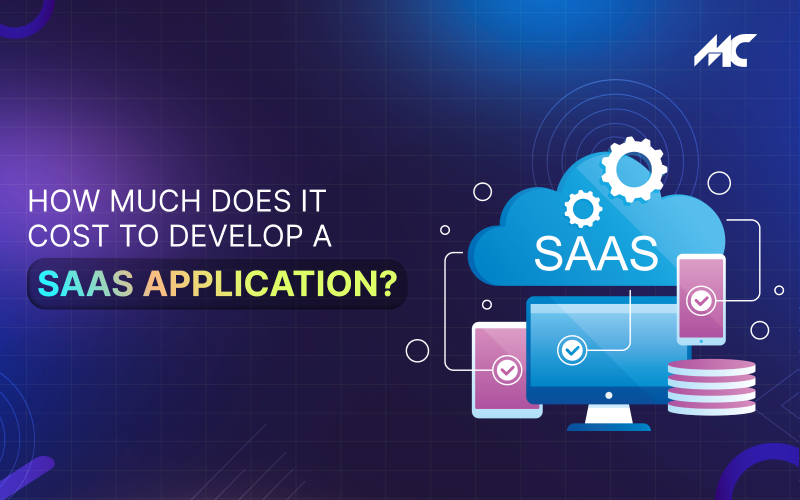 How Much Does It Cost to Develop a SaaS Application?
How Much Does It Cost to Develop a SaaS Application? -

 Mobilecoderz recognized as the Top App Development Company in Saudi Arabia by GoodFirms
Mobilecoderz recognized as the Top App Development Company in Saudi Arabia by GoodFirms




